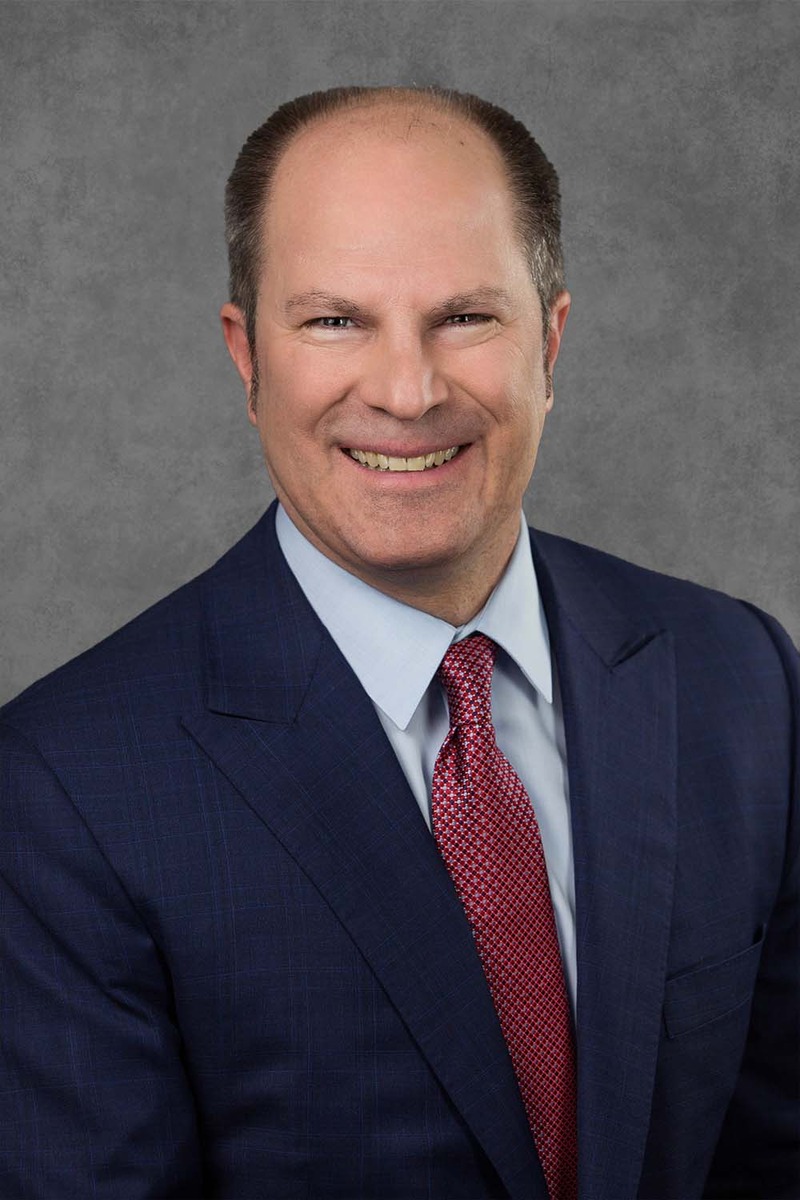Exploring trustee discretionary distributions:
Trustees are often given discretion over the circumstances under which a distribution may be made from a trust to a beneficiary. This article explores some of the factors that are important to consider when giving your successor trustee this power.
 There are many reasons people place money in trust for their heirs. Trusts provide professional management of assets for beneficiaries who either do not want to spend their time on such matters or perhaps do not possess the required skills. Trusts may also provide a level of asset protection from the beneficiary’s creditors. Finally, trusts often protect the beneficiary from their own impulses to spend recklessly. By naming a successor trustee to control distributions from a trust, the protective nature of a trust is more easily preserved.
There are many reasons people place money in trust for their heirs. Trusts provide professional management of assets for beneficiaries who either do not want to spend their time on such matters or perhaps do not possess the required skills. Trusts may also provide a level of asset protection from the beneficiary’s creditors. Finally, trusts often protect the beneficiary from their own impulses to spend recklessly. By naming a successor trustee to control distributions from a trust, the protective nature of a trust is more easily preserved.
Most people who place money in trust for heirs want the funds to be available for certain things and not available for others. Frequent reasons for distributions include paying health and education expenses, starting a business, or buying a home. The common joke is that Mom and Dad want their children to be able to buy a car—just not a Ferrari! The challenge is that a successor trustee, particularly a corporate trustee (such as a bank or trust company) is not going to know the beneficiary as well as a family member and may have a harder time weighing the decision to distribute or withhold funds.
Disbursements for health and educational expenses are quite common and straightforward. Absent contrary language in the trust agreement, health expenses would include doctor bills, pharmacy invoices, and health insurance premiums. Educational expenses would typically include tuition, materials, room and board, and even travel expenses. Medical and education expenses that may be considered “alternative” may also be covered unless the trust agreement contains restrictions.
What about funds to start or buy a business? If the grantors are entrepreneurs themselves, they may want to make money available to their heirs for such purposes. In such cases, a good trustee will want the beneficiary to present more than just an idea. At Whittier Trust, we ask the beneficiary to have a business plan and financial projections. An important consideration will be how quickly the business will get to break-even status. It’s best to avoid a situation where the trust will be asked to support future distributions without limitation, or“throwing good money after bad.” While the nature of start-ups is always uncertain, it is good for the beneficiary to be aware of the limitations of the trust.
 A similar business plan analysis should be undertaken when the beneficiary wants to buy an existing business or invest capital in a friend’s business. Most corporate trustees will be leery of the latter and often can play the role of “bad cop,” allowing the beneficiary to keep the friendship intact. In such cases, we are happy to let the friend know that the proposed investment is not aligned with the trust’s overall investment philosophy. This has saved more than one beneficiary from making an investment in a pal’s bar or movie.
A similar business plan analysis should be undertaken when the beneficiary wants to buy an existing business or invest capital in a friend’s business. Most corporate trustees will be leery of the latter and often can play the role of “bad cop,” allowing the beneficiary to keep the friendship intact. In such cases, we are happy to let the friend know that the proposed investment is not aligned with the trust’s overall investment philosophy. This has saved more than one beneficiary from making an investment in a pal’s bar or movie.
Many parents and grandparents want the trust funds to be available for the purchase of a home for the beneficiary. In such cases, we will weigh the choices between buying the home in the trust or making a distribution directly to the beneficiary for that purpose. If the house stays in the trust, the trust is often responsible for things such as property taxes, insurance, and capital improvements. The house, as an asset of the trust, remains safe from potential creditors of the beneficiary.
If the funds are given to the beneficiary for the purpose of buying the home, it is important to consider the beneficiary’s ability to support the normal carrying costs of real estate. Will the trust need to make further distributions for insurance and property taxes, or does the beneficiary have resources outside of the trust to handle these? If the home is in a community property state, is there a risk of inadvertently converting the real estate from separate property to community property?
What about the Ferrari? We have yet to meet a grantor who is in favor of the Ferrari-type purchase. After all, if the desire is to let the beneficiary do whatever they want with the money, there is not much need for a trust.
What is the best way for a grantor to convey their wishes to the successor trustee? Trustees are duty-bound to follow the specific terms of the trust agreement, so it’s possible to include very specific distribution provisions. However, given the ever-changing nature of life and the longevity of many trusts, handcuffing a trustee is not optimal. We often recommend that the trust language be broad enough to accommodate unforeseen circumstances, giving future trustees plenty of latitude. The trust agreement can be supplemented by a “letter of wishes” in which the grantors spell out their desires for the use of the funds. While these letters are not legally binding, trustees will look to them for guidance. Most trustees find these very helpful when making distribution decisions.
 When looking for professional trustees, it is important to ask them about their practices and procedures when it comes to entertaining a beneficiary’s request for distributions. Some corporate trustees are relatively inflexible and only review requests monthly by committee. At Whittier Trust, we look at requests on a case-by-case basis as they are made since time is of the essence in certain situations. Also, ask if the main objective of the trustee is strict preservation of the trust for future generations or if they are willing to accept a letter of wishes or trust language that favors the current beneficiary. Any good trustee will welcome these conversations in advance of being named in the trust.
When looking for professional trustees, it is important to ask them about their practices and procedures when it comes to entertaining a beneficiary’s request for distributions. Some corporate trustees are relatively inflexible and only review requests monthly by committee. At Whittier Trust, we look at requests on a case-by-case basis as they are made since time is of the essence in certain situations. Also, ask if the main objective of the trustee is strict preservation of the trust for future generations or if they are willing to accept a letter of wishes or trust language that favors the current beneficiary. Any good trustee will welcome these conversations in advance of being named in the trust.
For the grantor who is afraid of a recalcitrant trustee, including language allowing the beneficiary or another family member the ability to remove the current trustee and replace them with another trustee may provide additional comfort.
Like with all estate planning, professional advice from a capable attorney is the best place to start. Your lawyer will have had experience with different trustees and will be able to provide a perspective on what they have seen.
Written by Tom Frank, Executive Vice President and Northern California Regional Manager at Whittier Trust. Tom is based out of the San Francisco Office and oversees the investment team for multiple Whittier Trust offices.
Featured in Mountain Home Magazine. For more information, start a conversation with a Whittier Trust advisor today by visiting our contact page.
From Investments to Family Office to Trustee Services and more, we are your single-source solution.













 Whittier Trust, the oldest multi-family office headquartered on the West Coast, is pleased to announce the promotion of Brittany Renna, CFP®, APMA®, CTFA®, to the role of Vice President, Client Advisor, with the firm’s Newport Beach office.
Whittier Trust, the oldest multi-family office headquartered on the West Coast, is pleased to announce the promotion of Brittany Renna, CFP®, APMA®, CTFA®, to the role of Vice President, Client Advisor, with the firm’s Newport Beach office.









 Benjamin Franklin knew a thing or two about many topics, including, as it turns out, estate planning. As he famously warned,
Benjamin Franklin knew a thing or two about many topics, including, as it turns out, estate planning. As he famously warned,  “With unexpected life changes, people are often overwhelmed by the alteration of their family structure and the complexities of the estate settlement process,” says Baeza. “One of the reasons Whittier excels in this area is our ability to retain, maintain, and organize the essential documents needed to settle the estate properly.”
“With unexpected life changes, people are often overwhelmed by the alteration of their family structure and the complexities of the estate settlement process,” says Baeza. “One of the reasons Whittier excels in this area is our ability to retain, maintain, and organize the essential documents needed to settle the estate properly.”